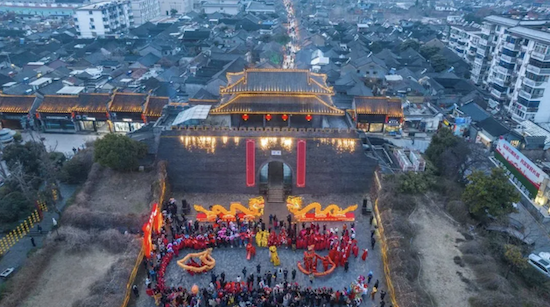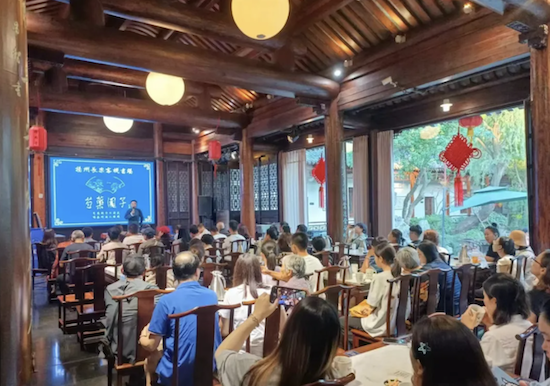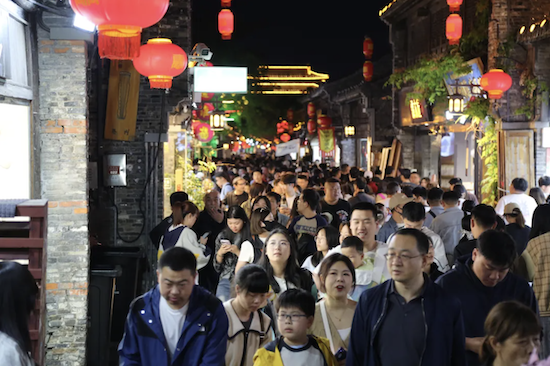Dongguan Street, located in the core of Yangzhou's urban area during the Ming and Qing dynasties (1368-1911), epitomizes the culture and history of the city.
Designated nationally as a tourism and leisure block, this ancient street hidden in East China's Jiangsu province encompasses a well-preserved traditional spatial layout characteristic of ancient cities, as well as traditional architectural complexes. In recent years, Dongguan Street has been developed into a dynamic destination that combines tradition and modernity.
Festive events
With Chinese New Year lantern festivals, cultural and creative fairs, parades exhibiting folk customs, the ancient block presents its youthful vitality.

A crowd gathers to celebrate Chinese New Year at Dongguan Street in Yangzhou. [Photo/WeChat account: yzs_lyj]
Cultural Landmarks
Studios dedicated to intangible cultural heritages like Yangzhou folding fans, paper-cuttings, and Yangzhou lacquerware technique, set up in cultural landmark venues by inheritors of these cherished arts, spread awareness and appreciation of the associated traditional skills and techniques.
Mini theater
Taking advantages of historical buildings, a cluster of unique mini theaters bringing performances of the traditional operas of Yangzhou has been integrated with museums, kezhan (a small-scale Chinese-style homestay), and tea houses.

An audience takes in an opera in the Shaoyao Yuanzi (Chinese Peony Garden) mini theater at Dongguan Street in Yangzhou. [Photo/WeChat account: yzs_lyj]
Diverse businesses
The development of characteristic industries is encouraged at Dongguan Street. Trendy shops with cultural themes, time-honored brands with new retail models, and the intertwining of traditional elements with modern sale methods is reshaping the streetscape, catering to the diversified needs of consumers.

Dongguan Street crowded with tourists in Yangzhou. [Photo/WeChat account: yzs_lyj]